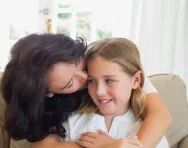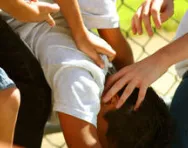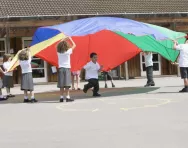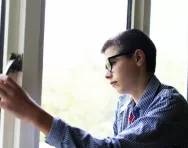Help your child cope with difficult feelings

As parents, we are the most qualified to recognise when things are not going well for our children. By being ‘present’ and trusting our intuition, we may not always know why something is wrong but we will generally be able to pick up on the fact that there is a problem. Knowing how to help your child learn to manage difficult emotions is key to building their self-confidence, but it's also important to realise that sometimes you may need to ask for professional help and support.


Start a unique learning programme!
- Weekly programme for each school year
- Worksheets sent direct to your inbox
- Keeps your child's learning on track
Difficult emotions: signs your child might be struggling
According to clinical psychologist Dr Hazel Harrison there are some typical signs to look out for in children that may indicate things are not going well.
Some children experience changes in appetite or sleep patterns. They may start to struggle with school work or experience difficulties with friendships. The challenge as a parent is knowing when these changes are just a ‘blip’ and when they are a sign that there are deeper problems that might need professional advice.
A good way to work out the difference is to keep a diary of the changes you are seeing. Keeping a log means that you have the facts to hand when you talk to a professional (which might then avoid any unfortunate and / or critical delays in getting help if it’s needed). But Dr Harrison also offers a word of caution: when we start to focus on the things that are going wrong, we can become really good at spotting them! It’s important to notice what’s working well for your child, too.
Looking after your child's mental health
Your GP is usually the best first point of call if you are worried about your child’s mental health, but it’s also important to talk to their teacher, one of the people who is most likely to notice any key changes in their behaviour. MindEd, a free educational resource on children and young people’s mental health, is a very useful online tool for parents.
Open and supportive family relationships help create an environment where emotional issues might be more easily recognised. Most children will have to deal with some of the following emotions during the primary-school years. Using storybooks like the Feel Brave series or examples from your own life and experiences will help them to feel they are not alone in learning to navigate difficult situations.
Finding self confidence when we feel left out
We all get left out from time to time, but learning how to ‘make our own fun’ and that, when we do this, we might meet some new friends, is a helpful strategy for children to try. Ask your child about what they like to do on their own and tell them to try this the next time that they feel left out to see what happens.
Change, loss and grief
It’s not only death that causes us to feel grief. We experience change, loss and grief all the time and the more open we can be about it (and the more we practise strategies to cope), the better prepared we can be for the inevitable changes life brings. Help your child to understand that it's okay to be sad about things coming to an end, but that we have to focus on the positive, exciting side of the changes that happen in our lives.
Anxiety and fears
If a child is anxious or fearful of certain situations and scenarios, a simple tip to help them cope is encouraging them to reimagine the things or people they are scared of as small and cute (this is a cognitive behavioural therapy technique called reframing). Can they visualise an intimidating teacher at garden-gnome height? Make up a story in which a dog is as small as a mouse?
Bullying
If children can learn to tell someone they trust if someone is making them feel bad, this is a great strategy for them to help manage a bullying situation. Empathy plays a vital role in preventing bullying; introducing random acts of kindness into a child’s day or asking them what they did that helped someone today or if they saw someone else do something kind for someone will help them practise empathy in their daily life.
Finding calm
Mindful breathing techniques or gratitude exercises are a great way to help calm children down and lots of different examples of how to use them with kids are available online. Research shows that meditation in its different forms helps the body release happy hormones (such as dopamine) and reduce stress hormones (like cortisol), putting children in a powerful positive mental state.
Avril McDonald is the author of the Feel Brave series of books (little stories about big feelings for 4-7 year olds) and founder of www.feelbrave.com. Her aim is to give all children access to tools to help them manage tough emotions and reach their potential. Avril is an ex-primary school teacher, a business woman and a mum.

Give your child a headstart
- FREE articles & expert information
- FREE resources & activities
- FREE homework help

























